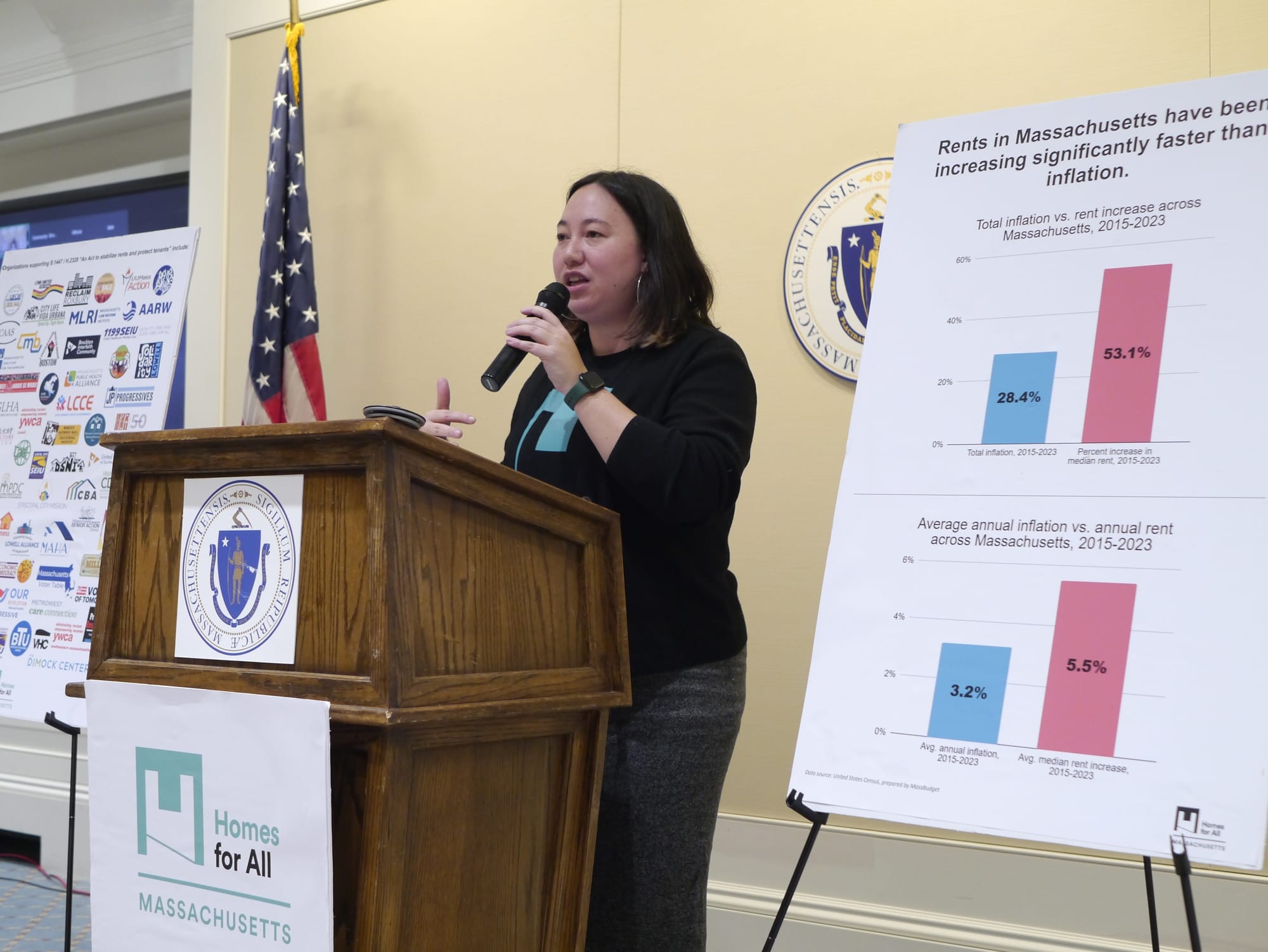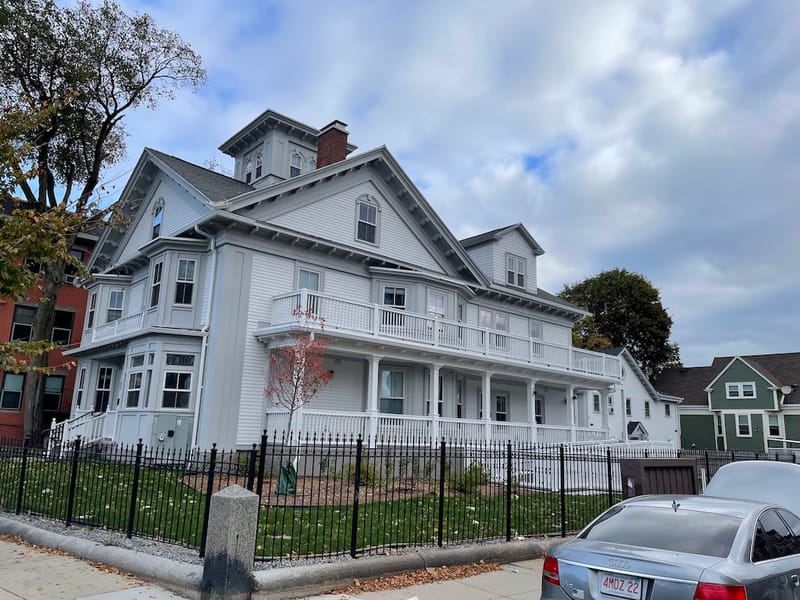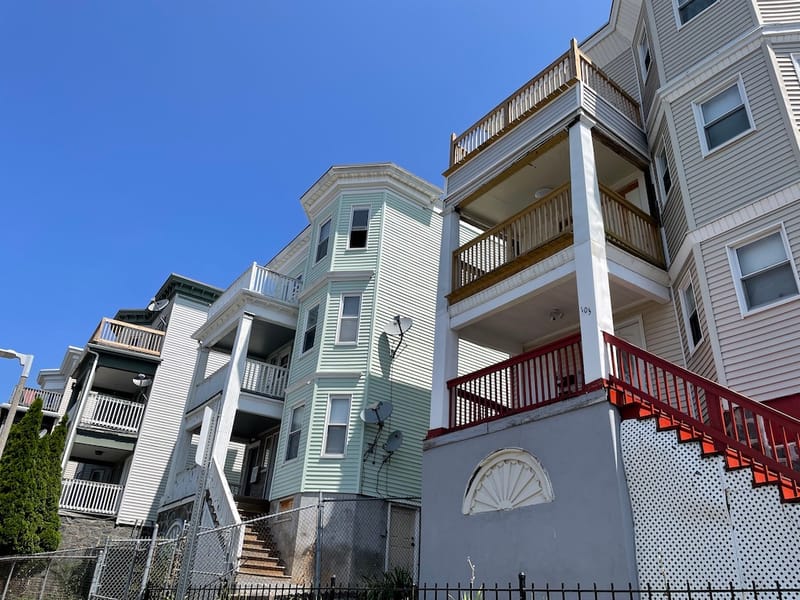Legislators, housing justice groups, tenants, and landlords gather to discuss rent stabilization legislation
A coalition of housing advocates is calling on the Legislature to allow local municipalities the option of instituting rent stabilization. Coalition members say they are willing to take the measure to a statewide ballot next year.
By Nicole Abrams
On Monday, legislators, housing justice groups, landlords, tenants, and other supporters gathered at the Massachusetts state house for a briefing, organized by Homes for All Massachusetts, on proposed legislation for rent stabilization in Massachusetts.
The legislation, which is titled, “An Act enabling cities and towns to stabilize rents and protect tenants,” is proposing a 5% limit on rent increases. The act also seeks to ban no-fault evictions and would require landlords to have a legal reason to evict people from their homes. According to the bill, these proposed regulations are meant to limit increases in rent and protect tenants.
There are currently no laws on rent control in the state of Massachusetts. This has been the case since 1996 when the state outlawed the enforcement of rent control.
Massachusetts state Senator Pat Jehlen, lead sponsor of the bill in the Senate, said at the briefing that Somerville, one of the cities that she represents, “is disappearing as a community.”
Mercedes Ryan, a community organizer for Springfield No One Leaves, a housing justice organization, pointed out in an interview that Massachusetts has the second highest cost of living in the country and that half of renters in Massachusetts spend over a third of their income on rent.
“Housing is just a horrific crisis right now in Massachusetts,” said Ryan. “And all the shelters are full, and part of that is because people are getting evicted because they can’t afford their rent.”
Pamela Schwartz, the Director of the Western Massachusetts Network to End Homelessness, also said in an interview that it has become incredibly difficult for people to find an affordable place to live.
“For our network, it’s considered to be one of the very top priorities to preserve affordable housing and to preserve housing stability for the people who live here. And this bill will do that,” said Schwartz.
State Sen. Adam Gómez, a cosponsor on this bill, said this proposed legislation “would allow our cities, our towns, our municipalities, to slow the rapid displacement of residents due to unprecedented and unreasonable rent increases.”
“We all deserve a safe place to call home,” said Gómez. “A home is a human right.”
Rep. Sam Montaño, who lives in Jamaica Plain, said that she is “getting a significant amount of displacement cases in my district.”
“It’s always older folks, and it’s always Black and brown folks, and they’re definitely not going anywhere, and they’re not even going anywhere back in Boston,” said Montaño.
Jehlen said that in East Somerville, half of the two and three decker homes were sold to investors and converted into luxury condos. In an interview, she explained that a speculator will buy a property and either raise the rent so that people “self-evict,” do no fault evictions, or threaten renters.
“If you’re going to try to stop the conversion of properties, you need to reduce the incentives,” said Jehlen.
Until it narrowly defeated by a statewide ballot initiative, only Boston, Brookline, Cambridge and Somerville had rent control policies. Voters in all four communities voted overwhelmingly to keep rent control in place, but real estate industry backers of the ballot measure banning the policy outspent supporters and passed the measure by a margin of less than 1%.
The rent control policies that were in place in the cities before the ballot measure included provisions such as limits on condo conversions that were meant to slow the displacement of low-income renters. In Cambridge, the rent control measure also placed limits on institutional expansion, barring large nonprofits such as Harvard and MIT from removing apartment buildings from the rental market.
Activists have for years sought to restore rent control, but have faced stiff opposition in the Legislature, where real estate industry lobbyists appear to exert considerable influence on lawmakers. According to a 2023 Boston Globe report, just 19 of the 198 lawmakers the Globe surveyed are renters, while at least 36 own commercial, residential or short-term rental properties.
Backers of the this year’s rent control legislation who gathered at the State House Monday said they are willing to take their proposal to a statewide ballot next year if the measure fails to pass in the Legislature.
“I know they don’t want us to go to the ballot, but I’m ready to go to the ballot,” Montaño said.
In addition to Montaño and Gomez, Legislators present at the briefing included state Sen. Liz Miranda and state reps. Chris Worrell and Ericka Uyterhoeven.
The coalition backing the measure includes Service Employees International Union (SEIU), base-building community groups such as New England Community Project and housing advocacy groups.
During the briefing, Mercededs Ryan said that the coalition’s proposed ban of no-fault evictions would help to decrease homelessness.
“That would help people stay in their homes and not have to look for something else or end up in a shelter that's already overflowed and can't even take other people,” said Ryan.
Kate Zanetta, a single mother and teacher living in East Hampton, told her story as a Massachusetts renter at the State House briefing.
Zanetta said that when she first moved into her apartment complex, the rent was affordable. Then, after a real estate investment firm bought the complex that she was living in, tenants were told that they had to agree to a 35% increase in rent within two weeks or else it would increase to 52% and they would have to face the possibility of eviction.
Despite the large increase in rent, Zanetta said that she signed on for another year because of the impossibility of moving into a new place in just two weeks.
“What choice do I have?” said Zanetta. “I feel like I’ve done everything I was supposed to do,” said Zanetta, “and I thought that would be enough to protect us, but it’s still not enough.”






